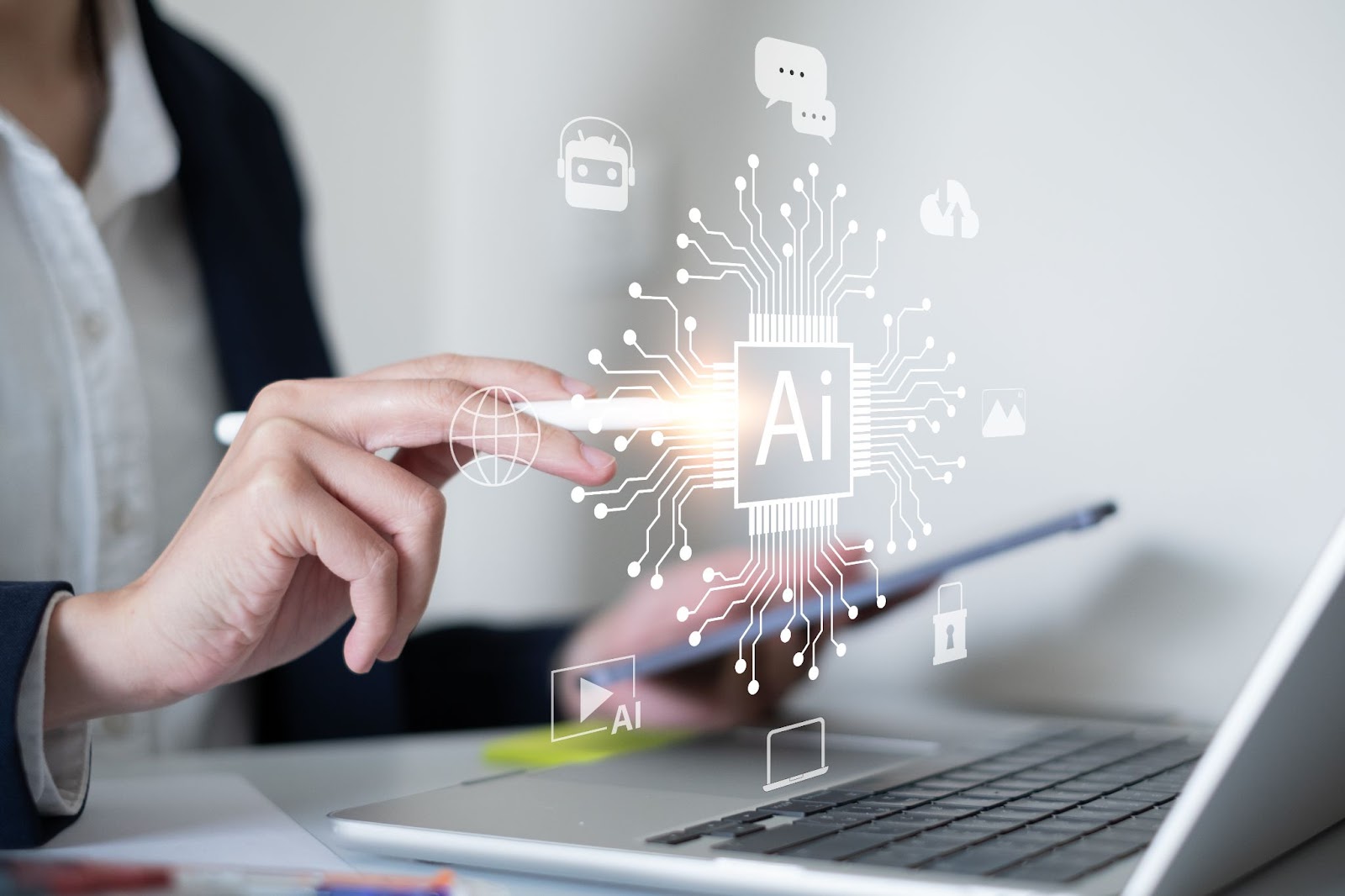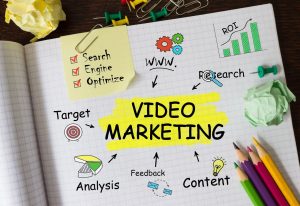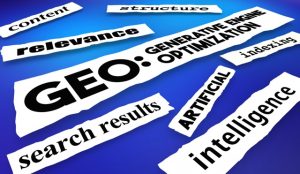Artificial intelligence now plays a major role in modern marketing. Businesses use it to connect with customers, run campaigns, and deliver personalized experiences at a scale that once seemed impossible. From predicting what customers want to streamlining how teams work, AI has reshaped how marketing strategies come to life.
In this blog, our goal is to help you see AI as a partner instead of a competitor. You will discover how it strengthens creativity, speeds up execution, and sharpens decision-making. By the end, you will understand how to use AI to work smarter, keep your edge, and turn hesitation into opportunity.
Understanding the fear around AI in marketing
Many marketers feel uneasy when they hear about AI reshaping the industry. Concerns often center on three main areas: losing jobs to automation, giving up creative control, and navigating the ethical questions that surround emerging technology.
These fears are natural when change feels fast and unpredictable, especially in a field where human insight and originality have always been central.
Myths versus reality
Much of the anxiety comes from the stories people hear rather than from how AI actually works. For example, AI does not “replace” creativity — it assists it by speeding up research, analyzing data, and suggesting possibilities that teams can refine.
It does not automatically take over entire jobs, but it can remove repetitive tasks so professionals spend more time on strategy and ideas. By separating hype from real-world capability, marketers can see artificial intelligence for what it is: a tool that enhances, not erases, human expertise.
Why misunderstanding fuels fear
Uncertainty often grows when there is little exposure to the technology in action. Without seeing AI applied to real marketing challenges, it is easy to imagine worst-case scenarios.
In reality, marketers who experiment with AI quickly learn how it supports decision-making, strengthens campaigns, and improves efficiency. The more you understand its practical uses, the more you view it as an advantage instead of a threat.
The opportunities AI creates for marketers
AI transforms marketing by unlocking capabilities that go far beyond manual processes. It empowers teams to work faster, reach the right people, and create more impactful campaigns when used strategically. Here’s how marketers leverage these opportunities to achieve stronger results.
Streamlining repetitive tasks
AI takes on time-consuming activities like data analysis, customer segmentation, and performance reporting. Instead of manually sorting through spreadsheets or running repetitive queries, marketers receive instant insights and actionable recommendations. This automation frees teams to focus on creative strategy, brand development, and high-level decision-making that drive growth.
Enhancing personalization and targeting
AI enables brands to deliver the right message to the right person at the right moment. AI creates highly detailed audience profiles by analyzing customer behavior, purchase history, and engagement patterns. Marketers then tailor campaigns to match individual interests, increasing relevance and boosting conversion rates.
Improving creative testing and optimization
With AI, testing campaign elements such as headlines, visuals, and calls to action becomes faster and more precise. Real-time performance tracking allows the system to identify which variations perform best and automatically allocate resources to top-performing creatives. This continuous optimization helps campaigns maintain peak efficiency throughout their run.
Opening new channels and formats
AI also helps marketers explore emerging platforms and content formats. These innovations expand a brand’s reach and engagement potential, from conversational chatbots that handle customer inquiries to AI-generated video scripts or interactive ad experiences.
By adopting AI-powered tools, marketers enter new spaces confidently and stay ahead of competitors who hesitate to innovate.
![]()
Steps to shift from fear to opportunity
Turning uncertainty about AI into confidence starts with intentional action. Marketers who embrace the change position themselves to unlock growth, improve efficiency, and spark creativity. These four steps will help you transition from hesitation to innovation.
Educate yourself and your team
Commit to ongoing learning about AI trends, tools, and best practices. Follow trusted industry publications, attend webinars, and explore training programs that explain AI’s capabilities and limitations in marketing. By building knowledge together, your team will feel prepared to use AI effectively instead of avoiding it out of uncertainty.
Start small
Choose one channel, campaign, or process as your AI test case. This might be automating part of your email marketing workflow, implementing AI-powered ad targeting, or adding a chatbot to your website. Starting with a single initiative allows you to assess results, learn from the process, and refine before expanding AI use across your strategy.
Focus on collaboration
Treat AI as a partner that amplifies human creativity rather than replacing it. Use it to handle repetitive or data-heavy tasks so your team can focus on storytelling, brand building, and strategic decision-making. When humans and AI work together, you benefit from both speed and insight while maintaining the originality and emotional resonance only people can deliver.
Measure and iterate
Track performance metrics that matter to your goals, such as engagement, conversions, or return on ad spend. Compare AI-driven efforts against your previous benchmarks to evaluate improvement. Use those insights to fine-tune your approach, experiment with new features, and expand AI’s role where it delivers the strongest impact.
The future of marketing with AI
The role of AI in marketing will continue to grow as technology advances and adoption becomes more widespread. AI systems will likely evolve beyond current capabilities in the coming years, offering even more precise targeting, hyper-personalized experiences, and predictive insights that anticipate customer needs before they surface.
These improvements will allow brands to create effortless and relevant marketing in real time, increasing both efficiency and impact.
The rising demand for creative and analytical marketers
As AI handles more technical and repetitive tasks, the most successful marketers will be those who blend creativity with analytical expertise.
Creative skills will remain essential for crafting compelling stories, developing unique campaigns, and building brand identity, while analytical abilities will be critical for interpreting AI-driven data and translating insights into actionable marketing strategies. Professionals who master both sides of this skill set will stand out in the evolving job market.
Adaptability is the ultimate advantage
Adaptability will be the most valuable skill in a landscape that shifts as quickly as digital marketing. New tools, platforms, and AI capabilities will emerge regularly, and marketers who embrace experimentation and continuous learning will remain competitive.
The ability to pivot strategies, test new technologies, and integrate innovative approaches will separate leaders from those left behind. AI will not replace marketers — it will reward those ready to evolve alongside it.

Turn AI into your marketing advantage with Revity
At Revity Marketing Agency, we help businesses bridge the gap between curiosity and confident execution. Our team blends creative vision with data-driven precision to design AI-powered marketing strategies that fit your brand and goals. From implementing automation tools to optimizing campaigns for maximum ROI, we make sure every technology investment delivers real results.
If you want to approach artificial intelligence in marketing with clarity, purpose, and measurable success, contact Revity today. Together, we will transform uncertainty into opportunity and position your business to thrive in a rapidly evolving digital world.




